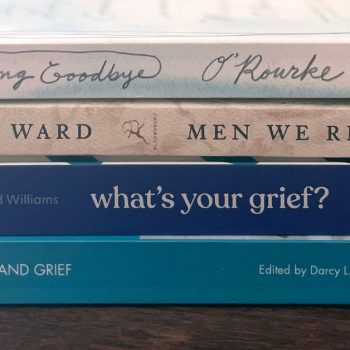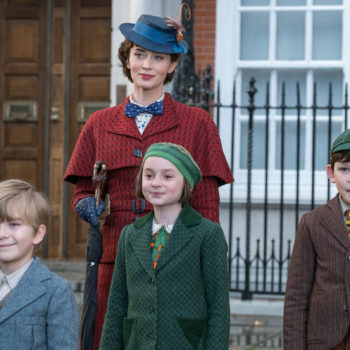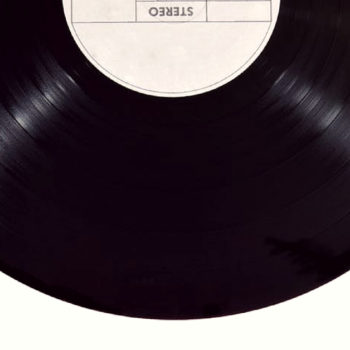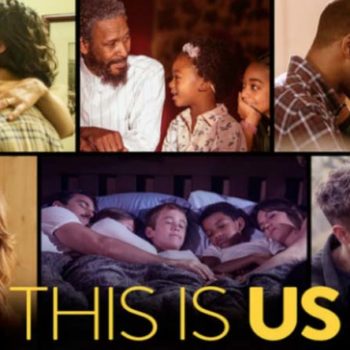The Cutting Room Floor: Depiction of Death in Hollywood
/ Books, Movies, and Music : Litsa Williams
On this post-Golden Globes Monday, when the internet is basking in the glory of Hollywood, recapping best and worst dressed, debating the deserved wins and losses, we at WYG would like to take a moment to rain on the Hollywood parade (womp, womp). Sorry Hollywood, but I have some gripes and today there will be an airing of grievances. These will come in the form of a letter. You know, a letter to Hollywood.
Dear Hollywood,
I will cut to the chase: stop romanticizing death. Really. Just stop it. I beg of you. I know you have movie tickets to sell and awards to win, but when it comes to the depiction of death, you've been making things look pretty for far to long and I'm tired of it. It is not serving anyone. In fact, it is just kind of mean.
Now, I know you're probably thinking...
"This lady's crazy. We have not romanticized death!! What about Kill Bill and Saving Private Ryan and Hostel and 300?? Everyone says were too violent, showing too much death, corrupting our youth. We don't make death pretty!!"
And you know Hollywood, you make a pretty good argument because you are great at the blood and the gore - not too much prettying things up there. You do violent death very well...congratulations??
Anyway, this isn't even what I'm talking about. I'm talking about the more common deaths - the deaths from illness, the deaths from age, the deaths in the hospital after disease or trauma; when it comes to these types of depictions, suddenly you swing to the other end of the spectrum. When these deaths make the silver screen they are quiet and tranquil. They are filled with acceptance, poignant moments, and people slowly and peacefully drifting off into [insert belief about what happens after death here].
Newsflash, Hollywood: THIS ISN'T ALWAYS WHAT DEATH LOOKS LIKE.
Now, let me be fair, sometimes the beautiful, calm, peaceful deaths do happen in real life. With the growth of hospice and palliative care, many individuals and their families are able to experience a "good death". Like the depictions of death from terminal illness we most commonly see in film, they are peaceful and comfortable, surrounded by friends and family. Sometimes people even die quietly in their sleep with no signs of suffering like Noah and Allie from 'The Notebook'. These things do happen; but sometimes, even many times, they don't.
In those cases people die after long and excruciating illnesses, they lose control of their bodies, their memory and neurological function deteriorates, or they end up in the hospital after a heart attack or a stroke or a trauma for days or weeks or months until their families make the excruciating decision to turn of the machines.
You may be thinking...
"Who cares? So we only show the prettied up death-no big deal. No one wants to see the long, drawn out, excruciating death. No one wants to see a ventilator being removed or hear agonal breathing and death rattles. We are trying to sell tickets, here! Doesn't hurt anyone to see a pretty death, does it?"
But I am here to tell you the unfortunate truth: it does hurt people. In a society where death most often happens behind closed hospital or hospice doors, the realities of death are kept on a 'need to know' basis. Very few people have been exposed to death until they are faced with watching their very own loved ones suffer through their last moments.
So, when our only experience with death goes no further than what we've seen in the movies, and you, Hollywood, only show us these pretty deaths, we assume this is what death always looks like. We think that we'll have a meaningful moment with our loved one and then they will peacefully fall asleep, 'Terms of Endearment' style.
We set expectations based on the scenes we have lovingly spilled our tears over throughout the years. We assume if death always looks like this on the big screen, then this must be what's normal. Just like you have convinced us that being 5'9 and weighing 115 lbs is normal, you have now convinced us that the picture of a perfect death you paint is the norm.
We see it time and again, we feel the pain, and we think that the Hollywood frail frame under a hospital gown, those sunken eyes, and lost hair looks pretty bad. Even Wit, a film I respect for tackling the sometimes-horrific experience of being a patient with a terminal illness, disappointed me by skirting the death itself, coming on back to Emma Thompson's peaceful body in her hospital bed, leaving us to imagine those last hours were the peaceful Hollywood moment we've come to know.
When our loved one's loss doesn't look like all those images you have been showing us, we think the death was abnormal. We worry our loved one's pain and suffering was worse than it could have been or should have been, because we compare it to your movies. We feel confusion or guilt or even more overwhelmed than we would typically feel. We would kill for that "pretty bad" illness or death scene we saw in a movie. We wonder, "where is our meaningful goodbye? Our closure? Where is our Hollywood moment?"
We've created an image of what a death ought to look like and when the reality is so far from what was in our minds, so much worse, we are utterly unprepared. We feel our loved one's situation is even more unfair and abnormal than it should be, because our basis of comparison is the movie Beaches.
Don't get me wrong, your films could never prepare us truly for the devastation and pain that can come with watching a loved one die, but it could get us a little closer. If we more accurately saw the sights and heard the sounds of death in movies, when we faced it in life we may realize it's normal. If you more accurately depicted the realities of caregiving in movies, perhaps we would not feel quite so isolated and alone when we realize how stressful it can be to care for someone we love.
So, Hollywood, here is my request: if you are going to show death, show the whole spectrum. Show the things that might help us understand death isn't always pretty, so we can be (even just a little) better prepared and feel (even just a little) less alone when we go through it with a loved one. Help us out here, don't distort our reality of an experience we will all face. Take some of those perfect Hollywood deaths and make them a little less perfect. Show us the withdraw of a ventilator, what a code in hospital truly looks like, the gurgles and death rattles that are sometimes unavoidable in the dying process, the change in skin color, the reality that the final moments are not always poignant. You've taken it on with sex and drugs and violence. Now do us this favor and add death to your list.
Chew on that Hollywood, take some time, mull it over. By next year I will be expecting you to have this issue under control and will be looking for some more realistic deaths in movies.
Sincerely,
The gals at What's Your Grief.
We wrote a book!
After writing online articles for What’s Your Grief
for over a decade, we finally wrote a tangible,
real-life book!
What’s Your Grief? Lists to Help you Through Any Loss is for people experiencing any type of loss. This book discusses some of the most common grief experiences and breaks down psychological concepts to help you understand your thoughts and emotions. It also shares useful coping tools, and helps the reader reflect on their unique relationship with grief and loss.
You can find What’s Your Grief? Lists to Help you Through Any Loss wherever you buy books:





Eleanor January 15, 2014 at 11:39 am
Darn! It didn’t work. Okay nevermind that. Well if you’re curious here is the link to our Facebook page and we were thinking we may write a list for an upcoming post as well.https://www.facebook.com/pages/Whats-Your-Grief
Eleanor January 15, 2014 at 11:38 am
Hey Arnie,
We asked your question about movies that depict the grief experience over on Facebook and it has sparked quite a lot of conversation. I don’t know if you are even on Facebook and I was trying to figure out how to share the string of comments here. Let’s see if this works (with my luck I’m sure it won’t).
Eleanor
Greet Grief January 14, 2014 at 8:30 pm
I couldn’t have said it better and agree 100% but good luck trying to convince Hollywood, or the paying public. It still amazes me how much educate continues to be needed and how many families choose to put their heads in the sand when it comes to discussing and planning for end-of-life. Like you said we have tackled sex, drugs, alcohol – I remember when the taboo subject was AIDS! But our society and our own friends and family have a long way to go when it comes to tackling DEATH. I hope they live long enough to figure it out?
Helene Domi January 13, 2014 at 5:11 pm
Amen Amen Amen!!!!! You are 100% correct. I am haunted by the memory of my mom’s last 2 days. It was horrific. I was totally unprepared for the struggle that my mom seemed to go through. I don’t care what hospice says, the death rattle is not a natural occurrence. My mom was either in pain or she was terribly afraid. I will never be the same.
The skin mottling is also scary to observe. I was not prepared for it.
I won’t even begin to discuss the grief. The movies/shows do not seem to research how all these affect you….forever. You don’t get closure. You get used to it. And that’s putting it nicely.
Arnie January 13, 2014 at 1:23 pm
Litsa- Thank you for your thought provoking view about Hollywood’s portrayal of common death. I agree with many of your points, and your column stimulated my thinking, especially about whether Hollywood is any better at depicting what grief can truly be like, as it plays out for the survivors who were close to the dying or deceased. You know, how do they cope, how are they affected, how do their behaviors change, how long can debilitating grief last, what are their regrets, how do they achieve peace, how do they pick up the pieces, how do they keep the decedent’s memory alive, etc? At the moment, only 2 movies come to mind that offer perhaps slight yet realistic insights into this topic, About Schmidt and The Descendants. Do you or your bloggers know of any Hollywood movies that may be anymore instructive about common grieving than they are about common deaths?